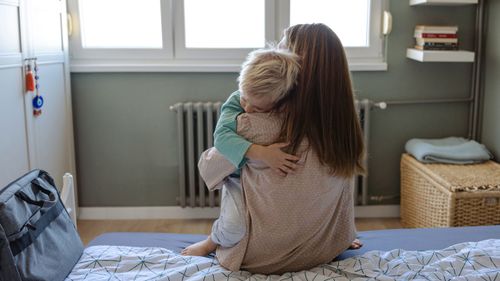Share this @internewscast.com
A recent report has shown a bleak snapshot of life in Australia, illustrating that people are experiencing greater loneliness, paying higher taxes, and postponing their aspirations.
It highlights how everything from rising living costs to the erosion of social networks is taking a toll on the nation’s well-being.

This phenomenon affects middle-income earners more significantly than high-income earners.
Wilkins also highlighted a reversal in household spending patterns.
Prior to 2021, Australians were spending less on necessities.
The recent rise in living costs has reversed previous progress, with the percentage of income spent on essentials increasing by 4.5% from 2021 to 2023.
Economic pressures reshape family and work
The report also sheds light on how economic pressures are influencing our biggest life decisions.
For the first time, the average number of children men want has fallen below two.
Although having two children continues to be the most common preference, there is a noticeable rise in individuals, both men and women, who prefer to have just one child or none at all.
Lass attributed this to potential parents growing “more concerned about their financial security and the costs of raising a child.”
Finally, the notion of retiring in your early 60s is fast becoming a thing of the past.
The proportion of women aged 60-64 who are retired has plunged from 70 percent in 2003 to just 41 percent in 2023.
For men in the same age bracket, the retirement rate has fallen from 49 per cent to a low of 27 per cent.
While some are choosing to work longer, the survey points to a more unsettling trend for many.
The number of retirees residing in private rentals has doubled over the past twenty years, facing financial hardships as average yearly rent expenses have climbed by 37% in real terms.
Dr. Kyle Peyton, the report’s co-author, cautioned that “superannuation won’t be sufficient to support the increasing number of young Australians who cannot afford to buy homes.”












